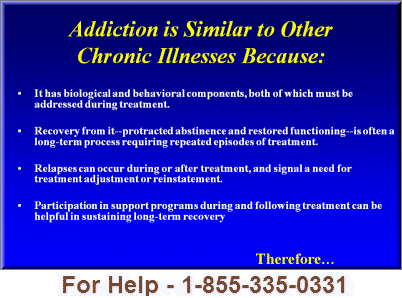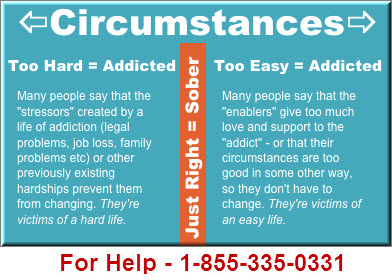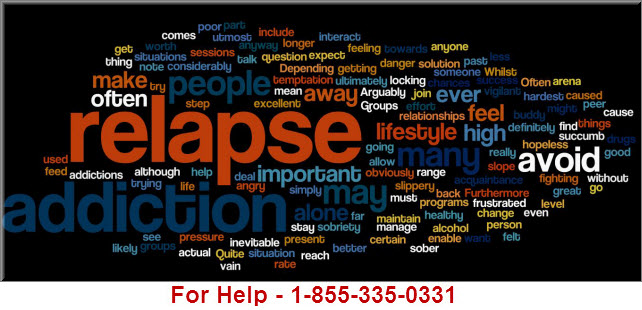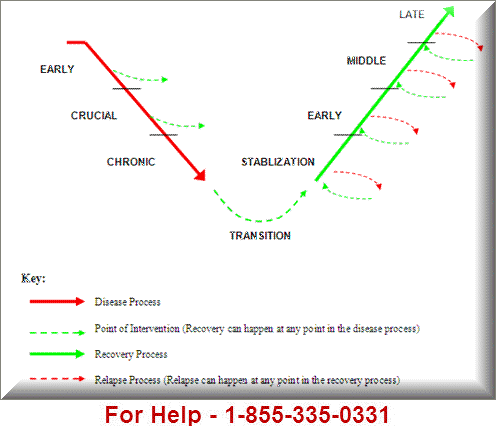Even though lots of people are able to stop their drug of choice successfully and effectively, all recovering addicts from alcohol addiction remain at risk and danger for relapse. This does not take very much for an individual to start using once again. An abrupt stressful or demanding event or feelings and emotions, or anxiety can easily put a individual at risk. Drug rehabilitation patients and sufferers will have a challenging road in front of them when it comes to completely and entirely turning their own life around.

Studies, Research, Analysis and Relapse statistics and data
Relapse or Backsliding is a significant concern for just about all recovering addicts. Research and investigation suggests how the relapse rate with regard to patients and sufferers is somewhere between 70% and 90 %. In studies, research of alcoholics, the abstinence rate had been 90 %. In this one research study, recovering and recuperating alcoholics attended group counseling and guidance for at least a year. Researchers credit this success rate to the actual counseling and direction they obtained at locations such as Options Okanagan Addiction Rehab in Kelowna.

What Places Men and Women at Risk and Danger of a Relapse?
Not being able to adequately cope and handle with mood swings, stress, panic and anxiety can lead an individual down the road of relapse or backsliding. There are many forms of relapse an individual could experience that may ultimately lead to their inability and failure to stay sober. Mental relapse and backsliding causes a person to become nostalgic or sentimental about their previous life and fondly recall occasions where they used the drug of choice. Physical relapses follow, which is where the actual addict used this dangerous and deadly substance.

Exactly what does long-term treatment and therapy provide for a patient and sufferer?
Even though relapse rates can surpass 70 %, and the period of treatment and therapy as well as the quality of care can dramatically and significantly reduce the likelihood of relapse in recovering and recuperating addicts . Research and investigation shows that in women, the actual relapse rate is a lot lower due to the fact they are able to recognize and understand the benefits and advantages of group counseling, which provides and supplies them with a different and higher level of access to the support necessary and essential to a full recovery from their addiction of choice. In a treatment and therapy setting, addiction counselors can tailor and customize group sessions to suit the needs associated with patients seeking counseling and guidance to increase their chances and probabilities of a successful and effective recovery. Medical professionals equate and compare that receiving care for an addiction to any other health situation, problem or issue. As a way to improve and increase a patient and sufferer’s success, an individual must be committed and dedicated for the long term in order to receive the proper and suitable treatment and counseling which is needed and essential. Among the factors that place men and women most at risk for and in danger of relapse is not having any co-occurring mental disorders treated or handled. In a professional and specialized long-term treatment and drug therapy center, a individual receives the benefits and advantages of drug rehabilitation and professional and expert counseling.

In a relapse prevention plan or strategy, a person is actually empowered and strengthened with the particular coping skills required to deal with emotions, feelings that may trigger and bring about the urge and desire to use drugs again. They will likely benefit from continuing and ongoing mental health counseling and guidance, and learning how to channel these desires into more productive and effective habits that will lead to a healthy life. As a result of formal alcohol treatment and therapy , an individual can develop and create a comprehensive relapse prevention and avoidance plan under the guidance and direction of a trained and experienced addiction counselor to work through the feelings and types of conditions that would probably motivate a person to use drugs again.
